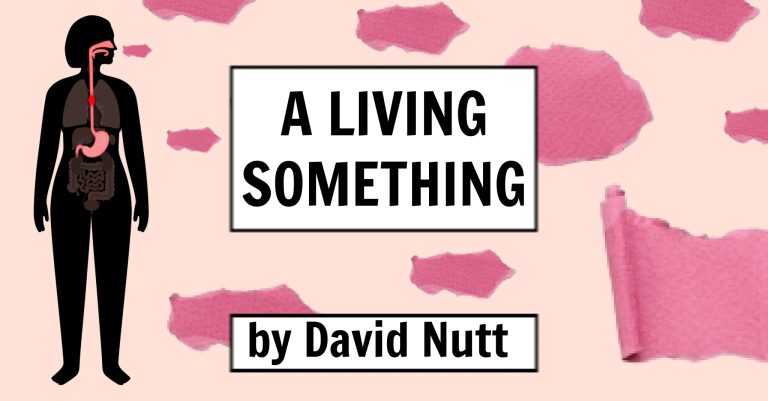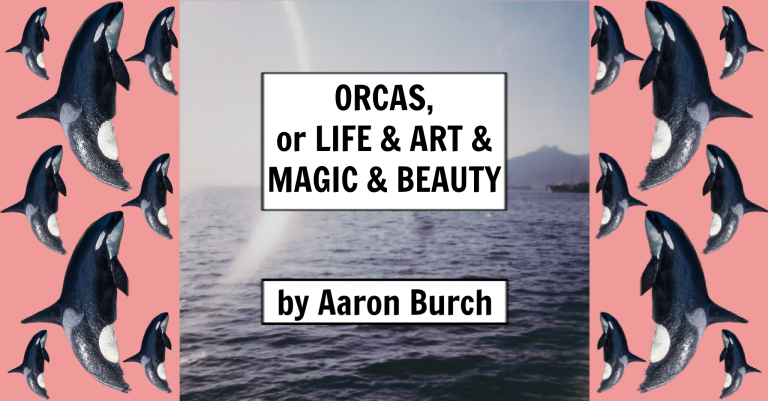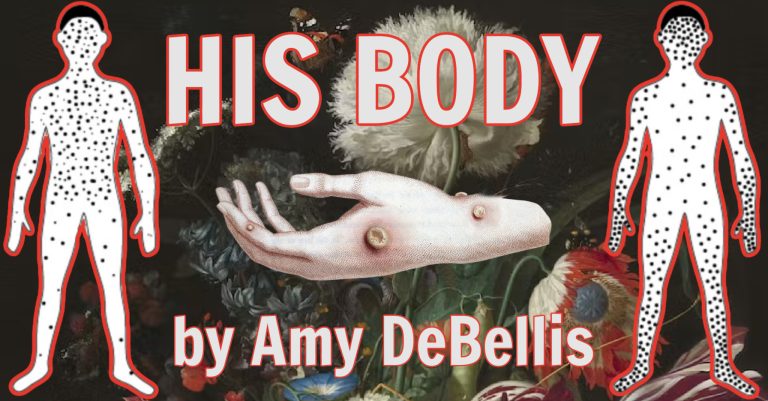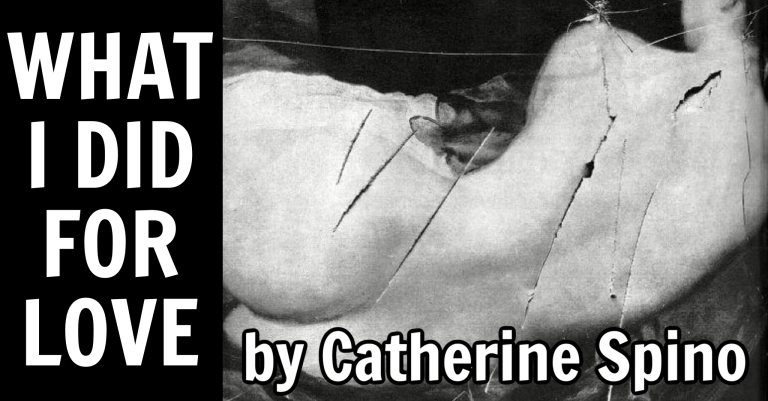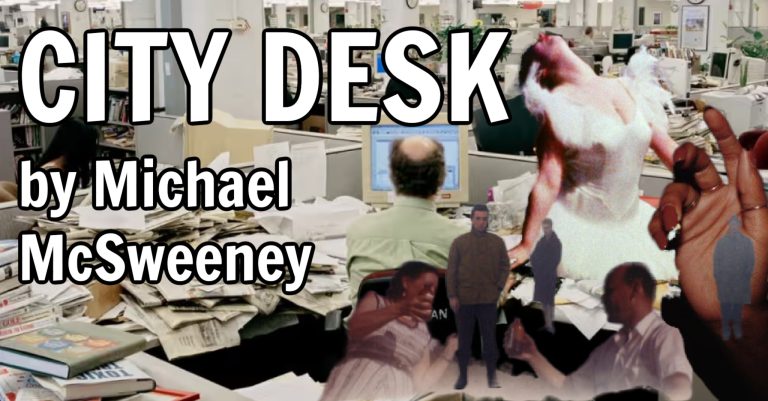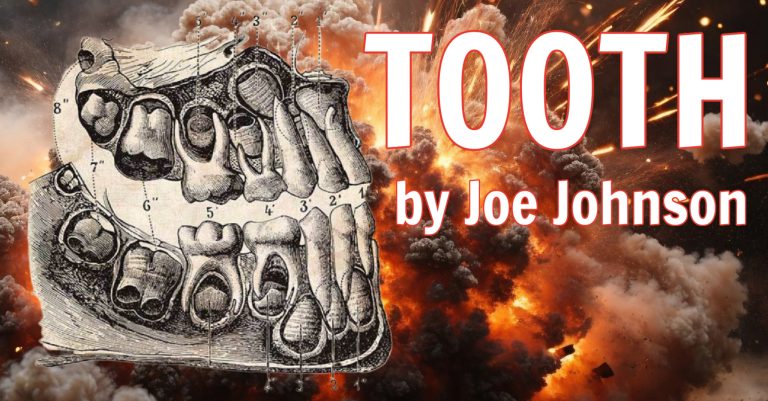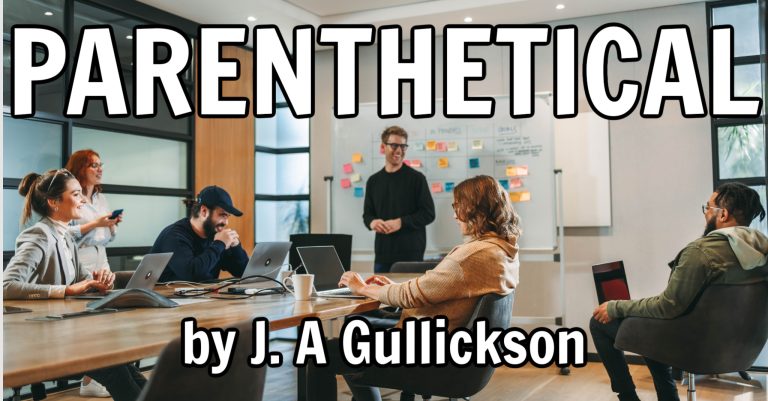
THE GROTTO by Jim Ruland
I
Seamus receives a key
“You’re in luck,” the innkeeper said. “The Grotto is available.”The innkeeper was a large man who wore suspenders, wire-rimmed glasses, and a fisherman’s cap. He looked like a builder of model ships. Seamus smiled and waited for the innkeeper to continue.“The Grotto is our most popular room. Usually booked months in advance. We had a cancellation, so it’s yours—if you want it.” “I’ll take it,” Seamus said. “What brings you to the Seaside Inn?” the man asked as Seamus filled out the registration papers. “I was in the city for a conference and decided to stay for a few days.” Seamus felt a tickle in his nose. He hoped there wasn’t a cat on the premises. “Wonderful,” the innkeeper said. “You’ll find plenty of peace and quiet here—if that’s what you’re looking for…” “Yes, yes, peace and quiet,” Seamus felt compelled to respond. “A word to the wise,” the innkeeper said as he handed over the key, an actual key with a bow in the shape of a skull, “if you decide to go exploring, stick to the path. We wouldn’t want you to fall into the sea!” “No,” Seamus said. “We wouldn’t want that.” “Let me know if you run into any trouble in The Grotto!” Seamus was a quiet man who didn’t like to be fussed over. He imagined that all weekend long he was going to have to assure the innkeeper how happy he was with his room. Seamus trudged up the narrow staircase with his suitcase, angling it to avoid banging into the bannister. Although it looked like a grand old house from the outside, there were only two rooms on the second floor. The words THE GROTTO had been painted on the door at the top of the landing. With something like foreboding, Seamus inserted the key and opened the door.II
Seamus contemplates a mural
It was otherwise a simple room. A bed and a dresser with a bench beneath the window. What made the room remarkable was the mural that covered all four walls and gave Seamus the impression of being in a cave. There were stalagmites painted on the baseboards and stalactites descended from the crown molding. Rock formations spread outward onto the adjoining walls. Crystals sprouted in all shapes and sizes. When Seamus closed the door it all but disappeared into the wall. Seamus was not adverse to close spaces. He lived in a small shoebox of an apartment and he had always made do with cramped quarters. He was a writer after all. He didn’t need a lot of space. All he required was his imagination.But the composition of the mural irked him. Lichen grew on the rocks, the walls seemed to gleam with condensation, and rows of bats hung from the uppermost reaches of the cavern. Everywhere he looked there was more information to absorb. His first instinct was to leave the room and go for a long walk along the cliffs, drink in the wind blowing over the waves, but Seamus was tired and hungry and soon it would be dark. He had spent the week walking all over the convention center. He had trod high-traffic carpet with baffling patterns, looking for conference rooms without numbers in hallways without names. He used to like these affairs, looked forward to them even, but each year fewer of his friends and acquaintances attended, and those that did seemed a little older, the disappointment in their faces more pronounced. Then there were the people he used to know who went out of their way to avoid him, as if the stink of his failure was contagious. Seamus kicked off his shoes, opened a granola bar (they were giving them away at the conference; he’d taken seven of them) and chewed without pleasure the dry oats and chalky fruit while staring at a section of the mural that depicted a school of black fish in a dark pool until he swore he saw one of them move.III
Seamus makes a discovery
Seamus woke in the middle of the night. He thought he heard a noise, a faint droning sound, and now he couldn’t get back to sleep. An incident at the conference earlier that week had been troubling Seamus, and apparently it wasn’t done with him.He’d been invited to sit on a panel called “Exploring the Edge.” The other two writers on the panel were a novelist named S.W. Sidewinder who wrote Westerns set in deep space, and Angela Danbury, a former adult film actress who’d written a series of erotic detective thrillers. Unfortunately, Danbury, whose books were wildly popular, had to cancel, and the panel was moved to a smaller room. This struck Seamus as reasonable until the young man who’d been assigned as his minder led Seamus and Sidewinder to the lobby where a shuttle waited to take them to a satellite location. “It’s not far,” the minder assured them. “This is for your comfort.”“This is a load of horse shit,” Sidewinder said. Sidewinder was right. The satellite location turned out to be a branch of the local library that had stayed open to host the event. Sidewinder became agitated when he was told the box of books he’d shipped hadn’t arrived and he stormed off in a huff. Seamus set out a small selection of his own books that he’d brought with him. Some of them were quite old and showed wear and tear from having been carted around the country, from conference to conference. In lieu of a discussion—since there were no other panelists—he read a short story from his most recent collection. No one attended the reading, but afterward, one of the ladies who worked at the library told him how much she liked the story. She asked him if he had a card. He didn’t, so he simply handed her the book, which embarrassed them both. Outside, there was no sign of his minder, just the driver, who urged him to hurry aboard because he had another run to make. On the way back to the hotel, Seamus thought of all the things he’d say to the conference administrators, but he was thunderstruck with shame over the whole sad affair and he spent the remainder of the evening sitting in his room. . Whether it was this memory or something else that stirred him he couldn’t say, but now Seamus was wide awake with little hope of going back to sleep. There it was again, the unusual noise that had roused him, only this time it seemed to be coming from underneath the bed. Seamus slowly swung his legs around and slid his feet into his slippers, which he always brought with him when he traveled. He went to the door and flipped the switch. The lights came on and the mural rose up out of the gloom—he’d forgotten all about it. He got down on all fours and looked under the bed. A white cat with icy blue eyes peered at him from a rug underneath the bed. The cat regarded him with the impertinent expression of a rich old woman who’d been caught dozing during a play. Seamus stood and opened the door. The cat stuck its head out, slowly crossed the room, and went out on to the landing. Seamus shut the door, turned off the light, and climbed back into bed. Well, that’s one mystery solved, but as soon as that thought left his head another took its place: Why was there a rug underneath the bed?IV
Seamus solves a mystery
The rug was small, but elaborate. If Seamus stretched out his arm, he could just barely reach its tasseled edge with the tips of his fingers. He thrust his arm under the bed until his thumb grazed the carpet and he yanked it like a stage magician performing a trick. The carpet came away but what it revealed was difficult to say. The room was just too dark.Seamus was not a large man, nor was he particularly strong, but once he set his mind to something he was determined to see it through to the end. There had been times in his life when this imperative had felt like a curse. Some mistook his commitment as bullheadedness or even a deficiency of intelligence, but the years had taught him this quality might very well be his best attribute. If he said he would do something, whether it was writing a book no one wanted, or giving a reading no one attended, he did it. No one could say Seamus had broken his word.The bed lifted easily, and before he could give much thought to what he was doing he swung the foot of the bed toward the window. The headboard protested with a squeak. There was a groove in the floorboards where the bed had been and when he ran his hands along the seam he found a place where he could grab hold of the trapdoor—for that’s what it was—and give it a quick tug. The trapdoor swung open. Seamus felt a gust of cool air, invigorating and inviting. The opening revealed a tunnel that was large enough to pass through and as soon as Seamus saw the iron ladder bolted to the stone, he knew he was going down. But that was crazy. He couldn’t go exploring secret tunnels in the middle of the night. Who did he think he was? Nancy Drew? Seamus pulled open a drawer in the nightstand and grabbed a flashlight, as if he had known it would be there. The torch felt good in his hand, solid and cool to the touch, and when he clicked the switch it sent a strong beam across the room, illuminating the mouth of the tunnel at his feet like a spotlight.V
Seamus impersonates a childhood hero
The tunnel was like a well, a hole in the earth that shot straight down, a tower pulled inside out. He focused on lowering his body into the hole one rung at a time. He didn’t look down and he didn’t look up. He’d made up his mind to see where the tunnel took him. The ladder was in excellent condition, especially considering that his room was on the second floor. How did that work exactly? Was there a tube between the walls that allowed him to bypass the rest of the house somehow? Seamus didn’t know, but he saw no reason why he should stop, so down he went. The farther he descended, the stronger the scent of the ocean became. He thought he could hear wave noise and imagined he was tunneling into the cliffs that overlooked the sea. At any moment he expected to plunge his feet into an icy pool of seawater, but after several minutes of steady climbing he reached the bottom. He took the flashlight out of his pocket and shined the light. A single passageway led away from the bottom of the ladder in what he guessed was the direction of the sea. Seamus set off at once. The tunnel was narrow and curved this way and that so that he couldn’t gauge how far he had to travel to reach the end. Seamus felt certain it would be a short walk. With each step the sound of the ocean grew louder as the waves smashed on the rocks. Underneath all that noise was another sound, faint yet persistent, a droning that might be the wind whistling through these chambers of the cliff like blood moving through a body. He imagined a large undersea cave with pools of crystal clear water and chandeliers of gypsum that hung down from above. That must be why his room was called The Grotto, he reasoned. As above, so below. Seamus hurried along, pleased with where his curiosity had taken him and thrilled to discover what was around the next curve of the tunnel.When he rounded the corner, the tunnel abruptly came to an end. It wasn’t blocked off or closed up. It simply stopped. It looked to Seamus as if whoever had dug the tunnel had simply abandoned the job and gone no farther.The rough stone registered as a taunt. He wasn’t heartbroken exactly, but he was greatly disappointed. He’d tricked himself into thinking he was on a grand adventure and he’d stumbled into a dead end. How was that any different from the rest of his life?Interlude
“Your cat was in my room last night,” Seamus said to the innkeeper the following morning as he checked out of the inn a few days earlier than planned. After his disappointment in the tunnel, he’d decided to go home.“Cat?” the innkeeper asked. “Yes, white with—”“We don’t have a cat,” the innkeeper interrupted, looking down his nose and over the rim of his glasses. He seemed annoyed that Seamus was cutting his trip short. Seamus decided not to bring up the matter of the tunnel when he turned in his key.VI
Seamus receives an unexpected invitation
A week after the conference, Seamus received an email from Belinda Barnes, the vice president of a booksellers’ organization. She wanted Seamus to know that she’d read his most recent book and loved it. Would he be interested in attending a luncheon the following month? In subsequent emails Ms. Barnes explained that it was a showcase for hidden gems—books that didn’t get a lot of attention, or the right attention when they were released, despite their considerable merit. They’d have plenty of copies of his books to sign and they’d pay for his travel and accommodations. It turned out that Ms. Barnes had seen him read at the conference. In fact, she was the lady at the library to whom Seamus had given a book. She confessed that she’d been profoundly moved by his short story and couldn’t get it out of her mind. She recounted to him how the story reminded her of a dream she’d had as a little girl, a dream she’d thought about often but couldn’t recall exactly, its meaning graspable but just out of reach. Seamus’s story, she admitted, inhabited her imagination in much the same way.Seamus accepted the invitation. Even if the event fell through, as these things often did, it felt nice to be appreciated. Ms. Barnes, however, was true to her word and the luncheon was a success. The house was packed and he signed so many books he used up all the ink in his pen. Ms. Barnes introduced him to representatives from other regions who wanted Seamus to read at their luncheons, dinners, and galas. The next morning, an agent called offering to represent him. Then another the following afternoon, and two more the day after that. This is strange, Seamus thought, but he met with the agents and ate shrimp cocktail every day for a week. One of the agents, a young woman who was an acquaintance of Ms. Barnes, had read many of his books, including some that were long out of print. She laid out a plan for reacquiring the rights to his work and reissuing them as a series.Seamus gave her the green light and it was done. His books appeared in actual bookstores. He had money in his bank account again. He flew in airplanes. He bought new shoes. Once a month he allowed himself to shop at the expensive new grocery store down the block instead of taking the bus to the market he’d been going to all his life. When his books came out, they were written about in magazines and newspapers and he received charming letters from readers all over the world. After all these years of eking out an existence as an underground writer, his stories had finally found their audience—although it felt like the other way around. His newfound fame, such as it was, introduced a host of new headaches that revolved around trying to be in as many places in as little time as possible, but even that wasn’t entirely awful. People were mostly nice and his fellow travelers told him interesting stories. The odd rude flight attendant or indifferent concierge reassured Seamus it wasn’t all a wonderful dream.VII
Success at last
A few years later, Seamus found himself back in the city on the coast where the conference that changed his life had been held. He was wrapping up a multi-city book tour for a new collection of stories. When his publicist presented the itinerary, Seamus requested an extra day at the end of the tour to rest up and he impulsively booked a night in The Grotto at the Seaside Inn. He hadn’t given the inn much thought during the tour, but now it was all he could think about. His career had undergone such a swift and sudden change that he’d scarcely had time to reflect on how unusual that night in The Grotto had been, creeping along the secret subterranean passage like a detective in an adventure book. Had that actually happened? Seamus was certain it had. He recalled the way the stone looked damp in the glare of the electric light but when he brushed his fingers against the rough-hewn rock it was cold and dry. The rich smell of the tunnel was both bracing and fecund, an ancient reminder of the things that stirred in the briny deep. And there was that sound, mechanical in its persistence, but when he remembered his room at the inn was located on the second floor, he doubted himself all over again.VIII
Trouble in the grotto
After he checked into his room, Seamus peered under the bed: the cat was gone, but the rug was still there. As he moved the bed and opened the trapdoor, all his doubts deserted him. He grabbed the flashlight from the drawer and checked to see if it worked. He breathed in the familiar scent of the ocean and scampered down the ladder with the joy of a boy returning to a childhood haunt after a long time away. Seamus didn’t understand this compulsion to descend into the tunnel again, but he’d learned long ago to trust his instruments, and down he went.At the bottom of the ladder, Seamus clicked on the light and shined it down the passageway. Everything was exactly the way he remembered it. The pungent sea air, the rumble of the waves, the cold rough stone—it all filled him with happiness—but after walking for several minutes the flashlight flickered and so did his confidence. He couldn’t shake the feeling that something was amiss. Shouldn’t he have reached the end of the tunnel by now? The air seemed colder and the distant rumble was now a roar. The walls were damp to the touch and when he shined the light at his feet he discovered he was standing in a shallow puddle. Had the tunnel lengthened in his absence? The tunnel took a sharp turn. As he went around the bend he beheld a widening of the shaft and realized he was standing in the mouth of a vast cave. The mural in his room was an exact replica of the cavern. The sound of bats and birds wheeling overhead filled the air and water trickled from a dozen hidden places. Great mounds of rock rose from the water and columns of stone dripped from the upper vaults. In some places, the two came together, dividing the cave into compartments. Most of what he could see of the grotto’s floor was covered in pools of clear water inhabited by tiny black fish.On the other side of the cavern walls the ocean thundered and he could detect a faint droning. Seamus shined the light around but he couldn’t locate the source of the sound. Seamus thought he caught a flicker of movement in the center of the grotto where a formation resembled a creature that crouched like a cat, but as he moved closer he realized it was just a rock, and the sound that blended into the background and sat in the forefront of his mind went up the slightest sliver of an octave. Seamus turned around but he could no longer discern the entrance to the tunnel. The droning grew louder, a difference so subtle he could almost talk himself into believing he was imagining it. Seawater lapped at his feet and the white foam filled his shoes as the water in the grotto began to rise. He frantically searched the folds in the rock for the entrance to the tunnel but it simply wasn’t there, like a riddle he couldn’t solve. The water rose past his knees and then his waist, and the cold water dispelled the faint hope that he was dreaming, that this was all a product of his imagination.Seamus thought how different his life had been the last time he ventured down the tunnel and how much better it was now. What if all the success he’d enjoyed since then wasn’t luck that had transformed his old life but a different life that he’d somehow stumbled into? What if there wasn’t a single tunnel beneath the Seaside Inn but many and each of them led to an alternate future? Seamus felt as though he’d wandered into one of his stories, and if that was the case he knew without having to be told that everything would be different when he went back to his room because he wouldn’t be returning to his new life, the life he’d always wanted, but venturing into an altogether different future.The water was at his neck now and lifted him off his feet. The grotto filled with wave noise and sea spray and the loud booming of unseen forces. As he slipped beneath the waves the droning stopped as if a great machine had been switched off.

